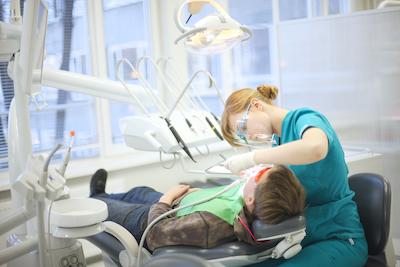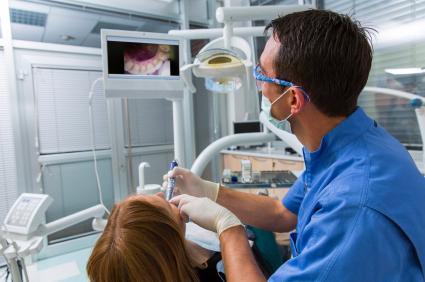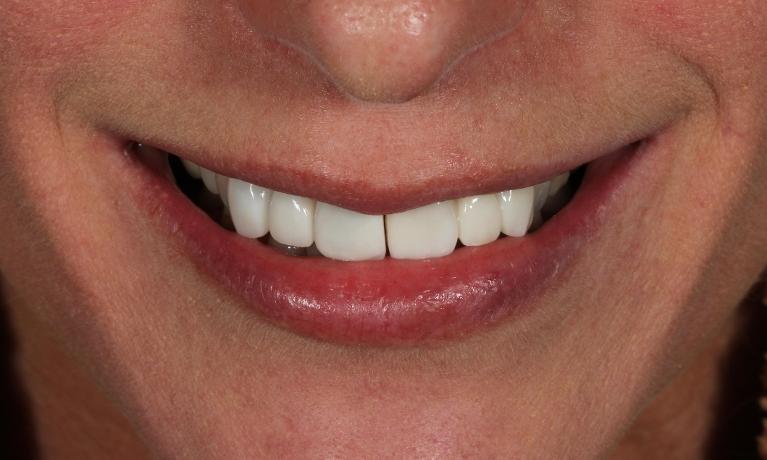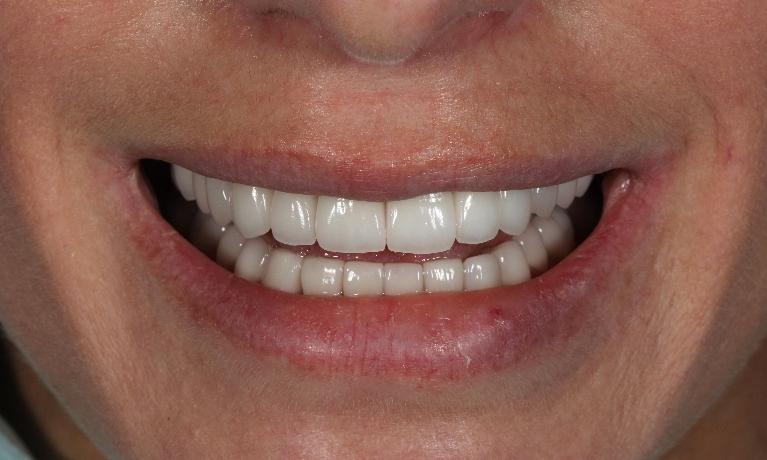General Dentistry in Aurora, CO
Serving the Aurora, Centennial, and Parker Community
At Uptown Comprehensive Dentistry and Prosthodontics, our goal is for our patients to enjoy healthy mouths and smiles for a lifetime, so we recommend you and your family come in twice each year for examinations and cleanings.
When it comes to good dental health, prevention is essential. By visiting us routinely for preventive care, we can stay on top of any potential dental issues. By monitoring your oral health, we can make sure your healthy smile is preserved for years to come.
Dr. John Chen looks forward to getting to know you and providing you and your entire family with gentle yet effective dental care! If you have questions or would like to schedule an appointment, please call our Aurora dental office at (303) 627-5755.
- What general dentistry services do you offer?
- Why do I need checkups twice a year if my teeth don’t hurt?
- What dental emergencies do you treat?
- How can you help me with my dental emergency?
- What does prevention have to do with whole-body health?
- What happens during a dental cleaning?
- How does gum disease develop?
- Who is at risk for gum disease?
- What are some symptoms of gum disease that I should look for?
General Dentistry in Aurora, CO
 Although Dr. Chen is a prosthodontist who has the skill and training to handle complex restorative cases, we are still a general dentistry practice. Our goal is for our patients of all ages to enjoy healthy mouths and smiles for a lifetime, so we offer a wealth of services to meet all your needs:
Although Dr. Chen is a prosthodontist who has the skill and training to handle complex restorative cases, we are still a general dentistry practice. Our goal is for our patients of all ages to enjoy healthy mouths and smiles for a lifetime, so we offer a wealth of services to meet all your needs:
- Dental exams
- Professional dental cleanings
- Digital x-rays
- Tooth-colored fillings
- Emergency dentistry
At Uptown Comprehensive Dentistry and Prosthodontics, we have two dental hygienists, and we can perform all your routine cleanings and exams here in our comfortable Aurora dental office. In fact, many patients who are referred to us by their general dentists for full mouth rehabilitation remain in our office for follow-up care.
Why do I need checkups twice a year if my teeth don’t hurt?
Scheduling preventive dental exams twice a year is essential whether or not your teeth are healthy. The goal of prevention is to help maintain your oral health, so the perfect time to visit us is when you’re not experiencing any problems.
Many people don’t realize that gum disease is the leading cause of tooth loss in adults, so keeping gums healthy is also critical to good overall health. Often, the only way gum disease can be detected is with an oral exam by your dentist, because it often occurs without noticeable symptoms.
Coming into our office twice each year enables us to stay up-to-date on any changes in your oral health. Dr. Chen can also keep an eye out for the early stages of decay and other problems so they can be treated earlier rather than later.
Staying on top of your oral health is one of the best ways to avoid dental emergencies, as well. This is because, with regular examinations, your dentist can keep an eye out for problems that could escalate if left untreated. If you have any more questions, don't hesitate to contact our Aurora, CO dentist office
What dental emergencies do you treat?
The most common treatment for a toothache is a root canal to get rid of the infection that has formed at the tooth root. Although many people have an unfavorable view of this treatment, root canals will get rid of your pain and save your tooth. The procedure itself is not painful.
We also see patients who have a tooth that has been damaged or knocked out because of trauma. If your tooth has been completely knocked out, the chances of saving it are better the earlier we see you, so it’s critical to get to the dentist immediately.
Other emergencies include a filling or crown that has fallen out. In these situations, you might feel some discomfort, but you can usually wait to be seen until the next available dental appointment.
How can you help me with my dental emergency?
 You can always turn to us for high-quality emergency dentistry at our Aurora dental practice to relieve your discomfort and restore your oral health. If for some reason a tooth is so severely damaged or diseased that we can't save it, Dr. Chen can extract it. This last-resort option is sometimes necessary, but treatment will be quick and gentle.
You can always turn to us for high-quality emergency dentistry at our Aurora dental practice to relieve your discomfort and restore your oral health. If for some reason a tooth is so severely damaged or diseased that we can't save it, Dr. Chen can extract it. This last-resort option is sometimes necessary, but treatment will be quick and gentle.
As an emergency dentist in Aurora, the team at Uptown Prosthodontics sees many patients for toothaches. If you are experiencing dental pain, it’s essential that you come in to see us right away. A toothache is never normal, and when it worsens, it usually just means the problem is getting more serious.
What does prevention have to do with whole-body health?
Excellent oral health is critical if you want to keep your entire body healthy. It seems that nearly every day, we learn that researchers have discovered a new connection between chronic oral inflammations like gum disease and medical conditions like:
- Coronary artery disease
- Respiratory infection
- Rheumatoid Arthritis
- Stroke
- Dementia
- Diabetes
- Fertility and pregnancy problems
Healthy teeth and gums are essential for your overall well-being, so routine cleanings and examinations should be an integral part of everyone’s plan to maintain good health and stay a step ahead of conditions like gum disease.
What happens during a dental cleaning?
Regardless of how well you brush and floss your teeth at home, routine dental cleanings and examinations need to be an integral part of your wellness plan. The risk for gum disease begins with plaque that sits between your teeth and below your gumline and is impossible to remove with brushing and flossing alone. Plaque hardens into tartar, which contains bacteria, and this can infect the gums. Even the most diligent brushing and flossing cannot remove tartar.
During regular your routine cleaning appointments, our experienced hygienists remove bacteria-filled plaque and tartar from places your toothbrush and floss can’t reach. They will look for signs of periodontal (gum) disease and develop a treatment plan to restore your gum health and protect your general well-being.
You should also use these visits to gather information about your oral health. The best way we can help you achieve and maintain excellent oral health is to understand what your concerns are, answer your questions, and offer recommendations that make sense for you.
How does gum disease develop?
In its earliest stage gum disease is called gingivitis. For some people, the first sign of gingivitis is gums that bleed when they brush and floss. You might also notice your gums are swollen or you have persistent bad breath.
Gum disease in its later stage is called periodontitis. At this point, gum disease is so advanced that pockets form between the teeth and gums. The jawbone can also be compromised, and without treatment, tooth loss can occur.
Many people don’t realize that gum disease is the main cause of tooth loss in adults. Don’t be a dental statistic: Maintain healthy gums to keep your teeth healthy.
Who is at risk for gum disease?
 The American Academy of Periodontology recognizes several factors that contribute to a higher incidence of gum disease:
The American Academy of Periodontology recognizes several factors that contribute to a higher incidence of gum disease:
- Age – Older people have a higher rate of gum disease, and estimates indicate that over 70 percent of adults over the age of 65 are affected.
- Tobacco use – Tobacco users have a higher risk of gum disease, and some studies show that it is the most significant risk factor in the development and progression of the disease.
- Genetics – Studies indicate that some people are more susceptible to gum disease than others.
- Stress – Stress is a risk factor for gum disease because it’s been found that stress makes it harder for the body to fight off infection.
- Medications – Many medications cause dry mouth which is in itself another risk factor for gum disease.
- Poor nutrition – If your body isn’t getting enough nutrients, it has a harder time fighting off infections like gum disease.
What are some symptoms of gum disease that I should look for?
One of the problems with gum disease is that many people are at risk and don’t even realize it. It often shows up without any recognizable symptoms, which is another reason why it’s so important to see your dentist regularly.
However, some common signs of gum disease are:
- Bleeding gums when you brush
- Tender, swollen, or inflamed gums
- Persistent bad breath
- Receding gums
- Teeth that feel loose
- A change in your dental bite
If you experience any of these symptoms, please call our Aurora dental office so we can provide the treatment you need and get you on your way to a healthier smile.

 No!
No!





